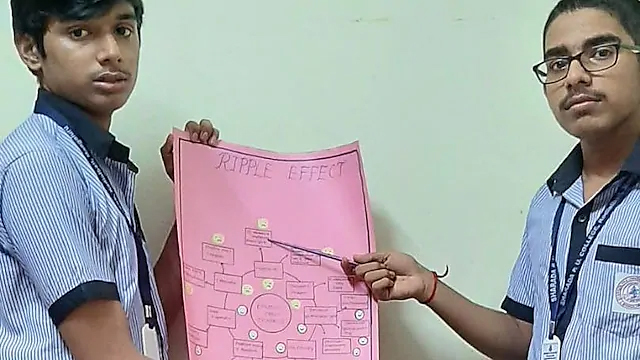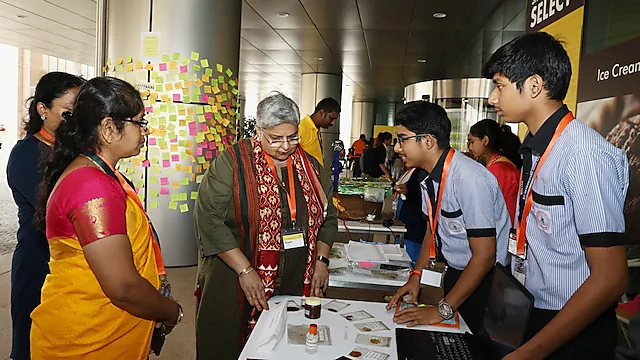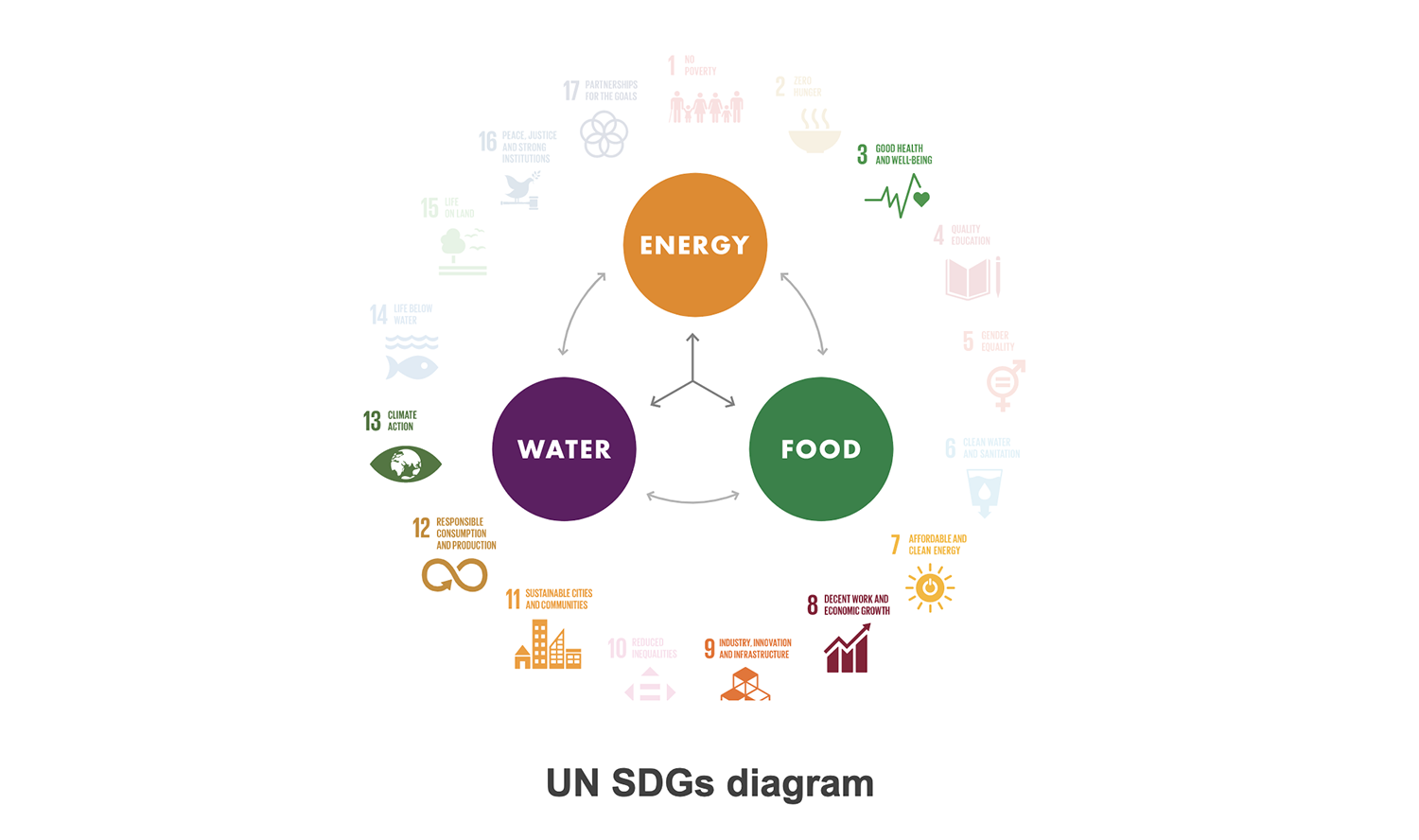NXplorers students in Sri Ramakrishna High School, India, reimagined the use of waste jackfruit to develop an energy solution that would create an economic alternative for farmers, and lead to a cleaner, greener environment.
Up to 40 per cent of the food produced in India is either lost or wasted*. Even though India is the largest jackfruit producer in the world, only a small amount is used. Most of the fruit is left to ripen and spoil. Not only does this cause a lot of food wastage, it means that farmers make less money, and it also has a negative effect on health as the rotting fruit increases the risk of diseases spread by mosquitos.
The NXplorers students came up with the idea to reimagine waste jackfruit as an alternative fuel and rethink waste in their communities. Their idea was firmly rooted in driving a sustainable change that would support farmers to switch to an eco-friendly fuel option. These are the steps they followed…
The students observed that their locality had a lot of jackfruit trees. During the rainy season, they would see countless jackfruits being left to rot. They had neither the technology nor time on their hands to be able to harvest them effectively. They observed that the abandoned jackfruits eventually ended up in a rotten state, which also attracted mosquitos and other pathogens, making the area more prone to dangerous diseases. Due to abandoned jackfruits rotting away, pathogens found their way into the farmlands. To keep the pathogens away, the farmers started actively using a lot of harmful chemicals and strong pesticides. Our NXplorers students wanted to repurpose the waste jackfruit to stop this vicious cycle from repeating itself.
Using the NXplorers toolkit and NXthinking methodologies, the students were able to finalise a solution – they decided to produce ethanol from jackfruit. The students factored in various aspects, like practicality, scalability, scope and functionality of their idea. Taking part in the NXplorers programme enabled them to apply their problem solving and critical thinking skills in real life and find solutions to their day-to-day problems.

Through the process of fermentation and distillation, bioethanol was created from the waste jackfruits. Bioethanol has a significant role to play as a biofuel, a fuel of the future, as it has immense potential to reduce the amount of carbon dioxide emissions.
Some of the NXplorers students grew up in households that had always worked closely to maintain ecological balance. Due to many of their parents being involved in agriculture, they were extremely aware of the problems within the community environment and the need to develop solutions together. By developing a biofuel from waste jackfruits, the students helped their local community to rethink waste and see how it could be made useful again, fostering a culture of conservation at the same time.
*Source: The Times of India, September 2019

By developing a biofuel from waste jackfruits, the students helped their local community to rethink waste
This project helped the NXplorers students to see that finding solutions to local challenges can have wide ranging global impacts. By solving the local problems of pathogen spread and food waste, they saw that they could directly contribute to the global fight against climate change as well as the UN Sustainable Development Goals. Specifically, this project contributes to UN SDG 3, 7, 8, 9, 11, 12 and 13.
3. Good health and well-being
Ensure healthy lives and promote well-being for all at all ages
7. Affordable and clean energy
Ensuring access to affordable, reliable, sustainable and modern energy
8. Decent work and economic growth
Promote sustained, inclusive and sustainable economic growth, full and productive employment and decent work for all
9. Industry, innovation and infrastructure
Build resilient infrastructure, promote inclusive and sustainable industrialization and foster innovation
11. Sustainable cities and communities
Make cities and human settlements inclusive, safe, resilient and sustainable
12. Responsible consumption and production
Ensuring sustainable consumption and production patterns
13. Climate action
Take urgent action to combat climate change and its impacts.

Diagram of the United Nations’ Sustainable Development Goals numbered in a large circle, each with a smaller diagram below to represent the specific Development Goal. All of the Development Goals are faded, apart from seven of them:
3. Good health and well-being
7. Affordable and clean energy
8. Decent work and economic growth
9. Industry, innovation and infrastructure
11. Sustainable cities and communities
12. Responsible construction and production
13. Climate action
Within the circle there are three circles in a triangle formation reading ‘Energy’, ‘Water’ and ‘Food’, with arrows to show how they are all interconnected.